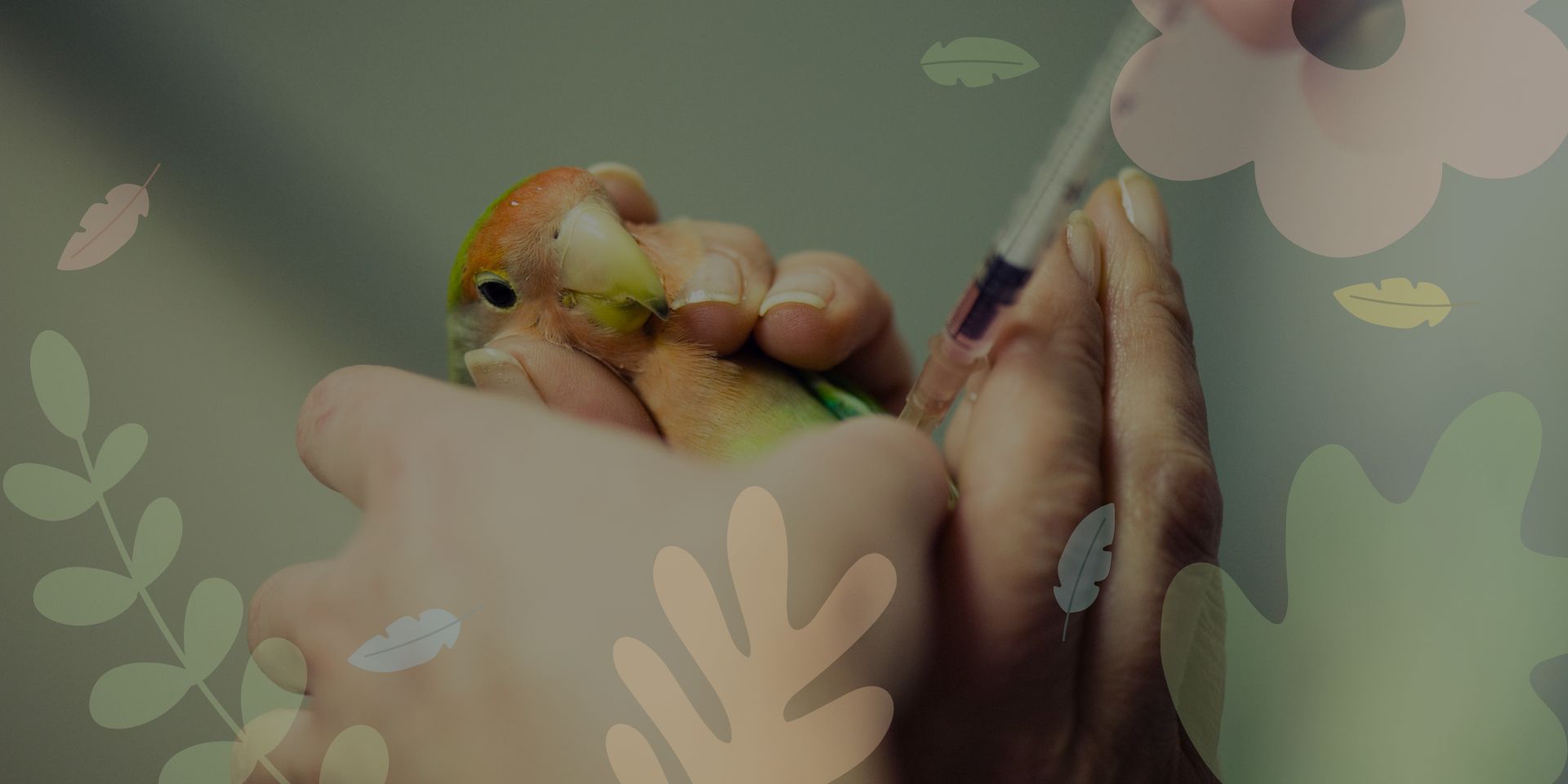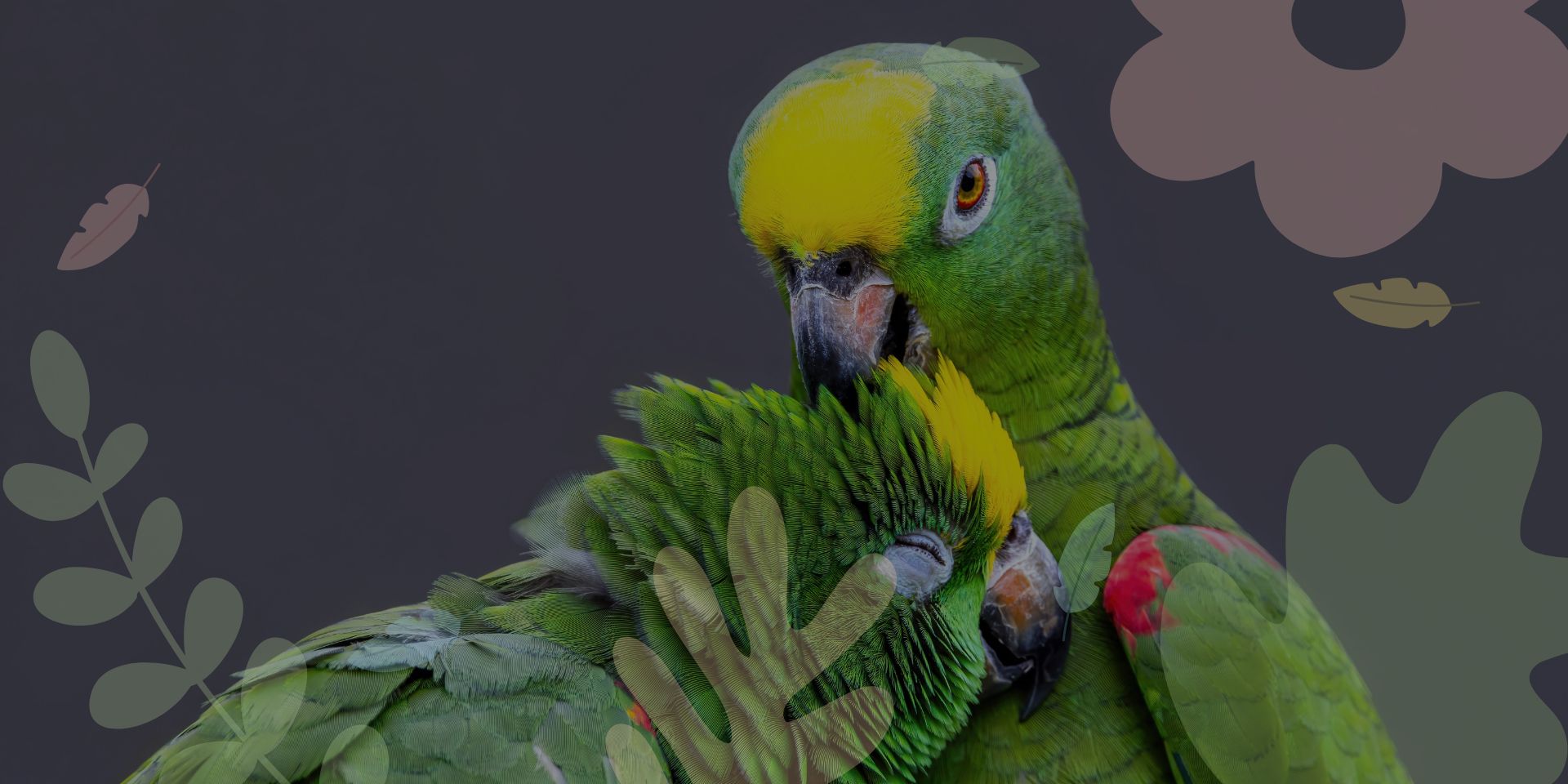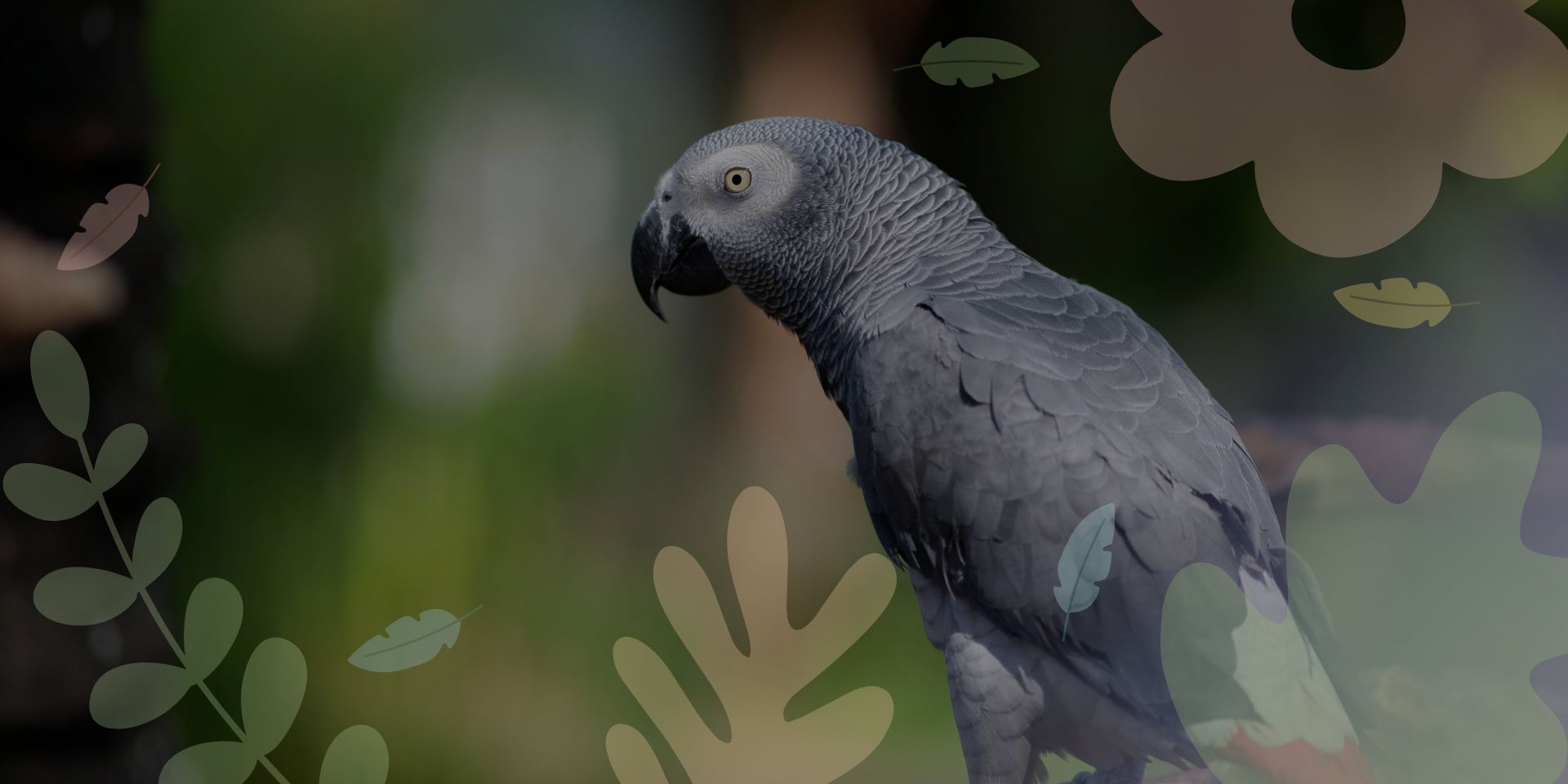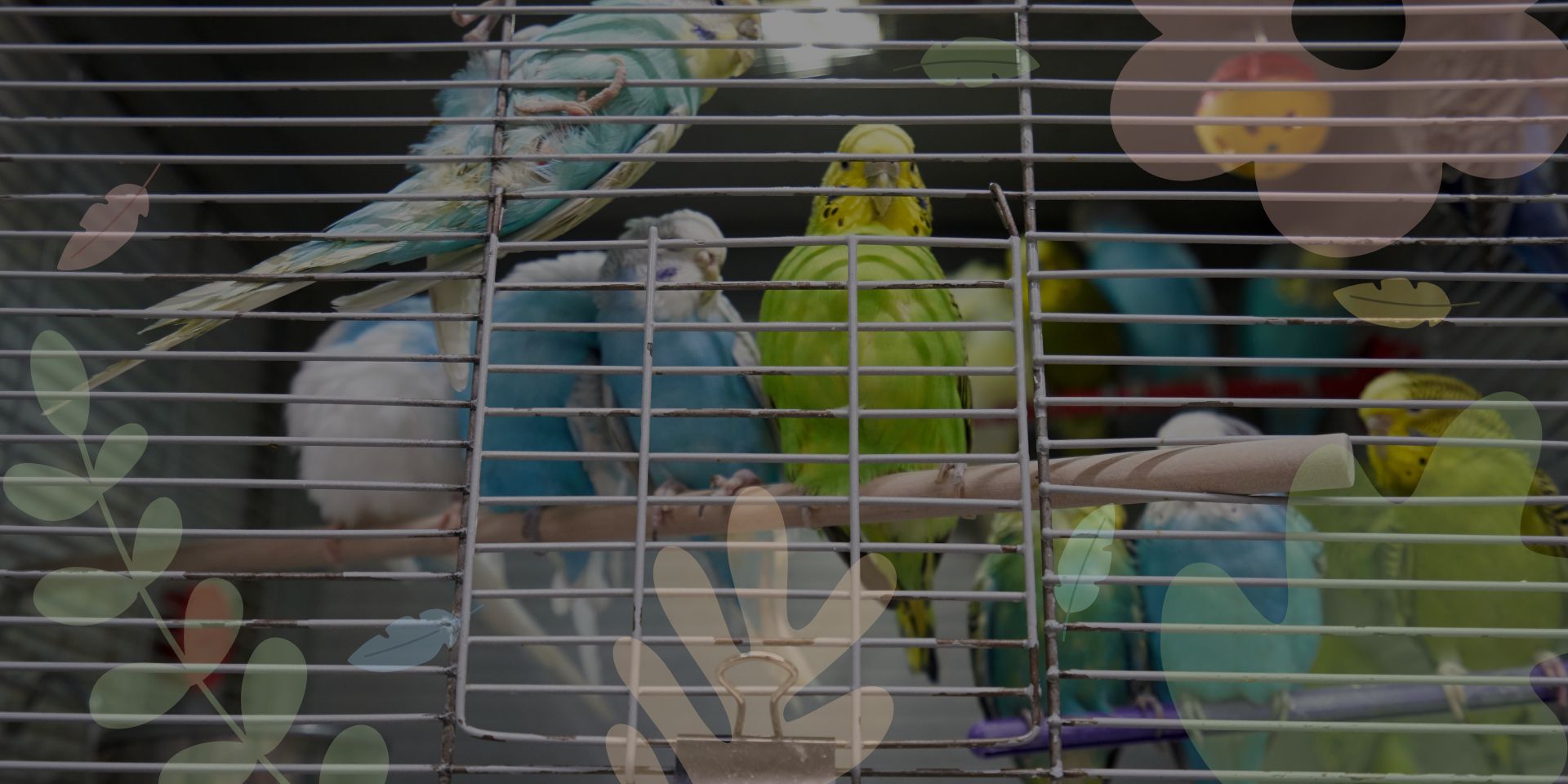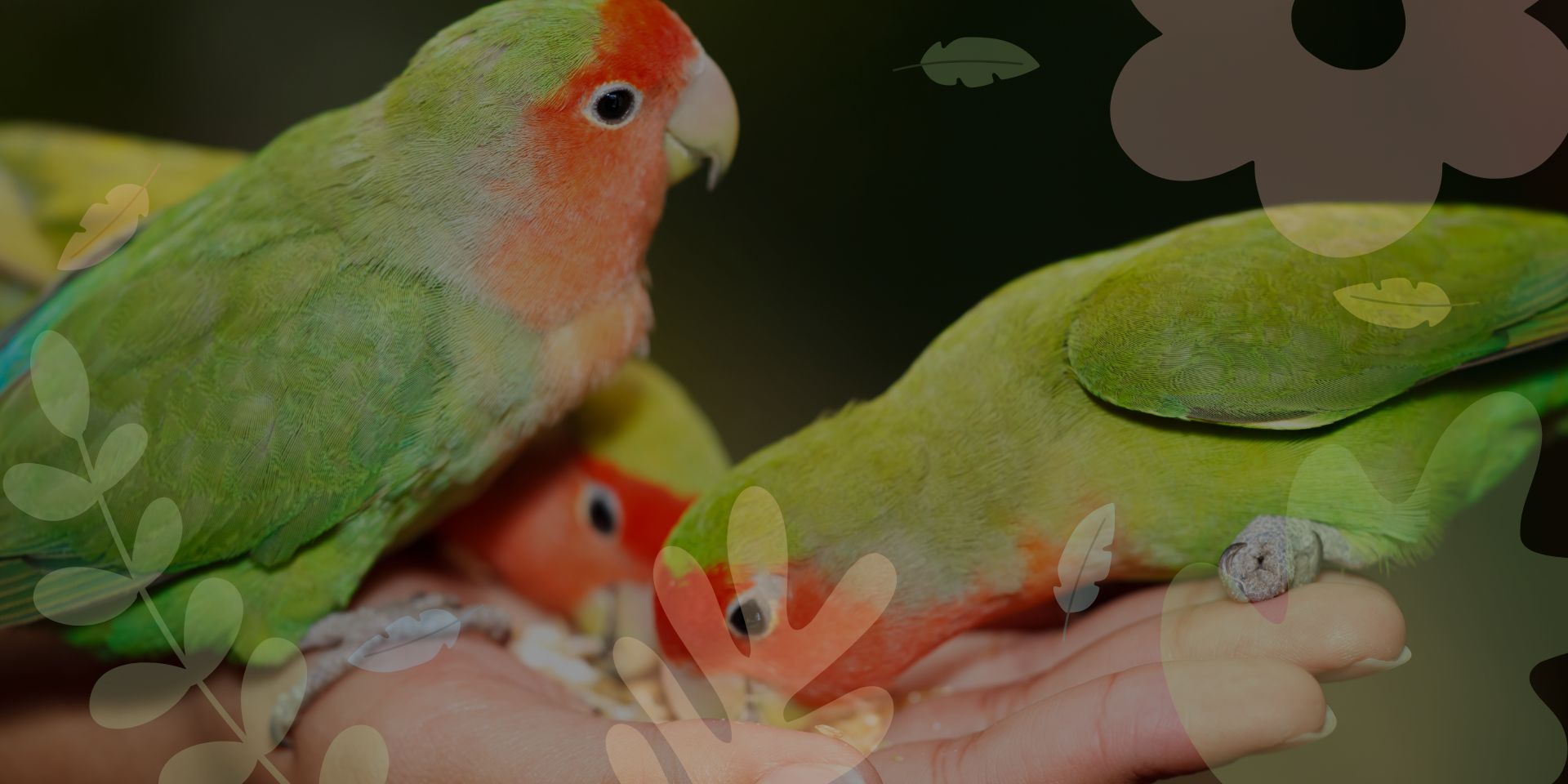Bringing a parrot into your home can lead to an incredible bond with a lively and intelligent companion. However, responsible ownership means being aware of potential health risks. This guide outlines 24 common diseases and health conditions that can affect parrots, their symptoms, and how to address them.
Summary of Parrot Diseases and Transmissibility
| Type | Name | Horizontal (bird to bird) | Vertical (bird to egg) | Zoonotic (bird to human) |
|---|---|---|---|---|
| Viral | Proventricular Dilatation Disease (PDD) / Macaw Wasting Disease / Avian Bornavirus | Yes | Possible | No |
| Viral | Psittacine Beak and Feather Disease (PBFD) | Yes | Yes | No |
| Viral | Avian Polyomavirus | Yes | Possible | Possible |
| Viral | Avian Flu / Bird Flu | Yes | Possible | Yes |
| Fungal | Candidiasis / Candida | Yes | Yes | Possible |
| Fungal | Aspergillosis | No | No | No |
| Fungal | Avian Gastric Yeast / Megabacteriosis | Yes | Not known | Possible |
| Bacterial | Psittacosis / Chlamydophilosis / Chlamydiosis / Parrot Fever | Yes | Yes | Yes |
| Bacterial | Avian Mycobacteriosis / Avian Tuberculosis | Yes | Yes | Possible |
| Parasitic | Giardiasis | Yes | Not known | Possible |
| Parasitic | Avian coccidiosis | Yes | Not known | Possible |
| Parasitic | Air sac mites | Yes | Not known | Might bite humans but may not survive long on humans |
| Parasitic | Feather mites | Yes | Not known | Might bite humans but may not survive long on humans |
| Parasitic | Scaly Face Mites / Scaly Leg Mites | Yes | Not known | No |
| Parasitic | Ticks | Yes | Not known | Might bite humans but may not survive long on humans |
| Parasitic | Lice | Yes | Not known | Might bite humans but may not survive long on humans |
| Parasitic | Worms | Yes | Not known | Possible |
| Deficiencies or excess | Hypovitaminosis-A | No | No | No |
| Deficiencies or excess | Hypocalcaemia | No | No | No |
| Deficiencies or excess | Fatty tumors (including lipoma and xanthomata) | No | No | No |
| Deficiencies or excess | Fatty liver disease | No | No | No |
| Others | Stargazing/twirling | No | No | No |
| Others | Rhinoliths | No | No | No |
| Others | Seizures | No | No | No |
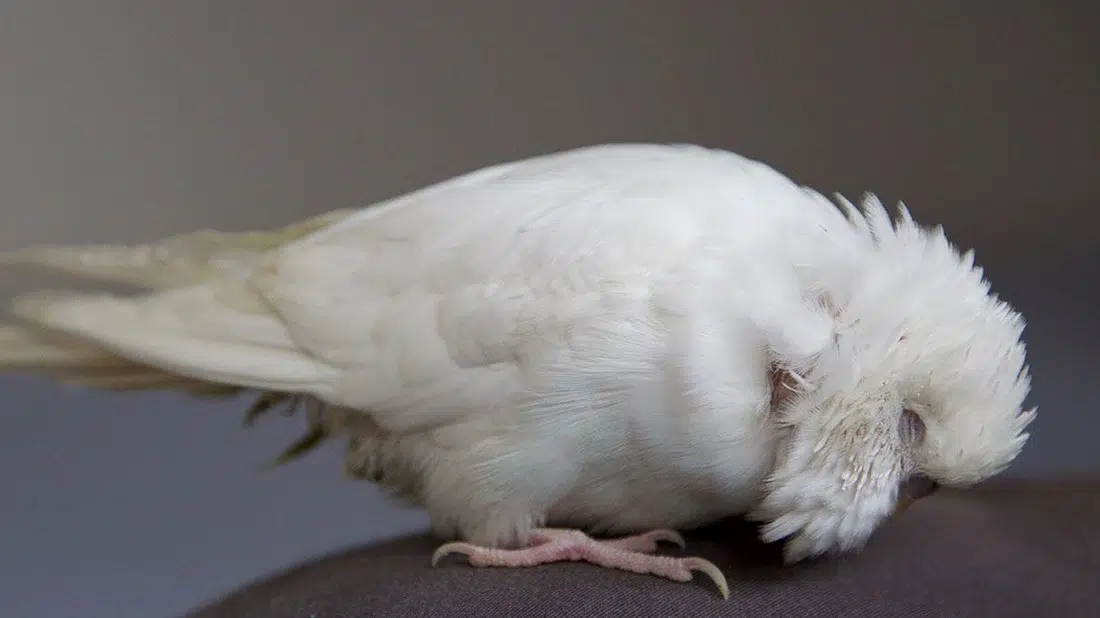
Viral Parrot Diseases
1. Proventricular Dilatation Disease (PDD)
- Cause: Linked to Avian Bornavirus, though not fully understood.
- Symptoms: Regurgitation, undigested seeds in feces, weight loss, tremors, ataxia.
- Transmission: Between birds and possibly vertical (parent to egg).
- Treatment: No cure; supportive care only
2. Psittacine Beak and Feather Disease (PBFD)
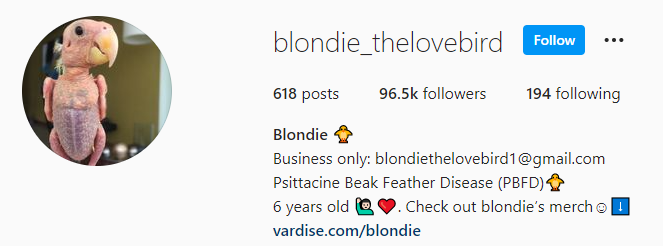
- Cause: Circovirus.
- Symptoms: Feather loss, abnormal feather and beak growth.
- Transmission: Highly contagious among birds; vertical transmission possible.
- Treatment: No cure; supportive care and isolation
3. Avian Polyomavirus
- Cause: Polyomavirus infection.
- Symptoms: Anorexia, regurgitation, weight loss, tremors, hemorrhagic skin.
- Transmission: Spread via droppings, feathers, and crop milk; vertical transmission possible.
- Treatment: Supportive care; vaccination available.
4. Avian Flu (Bird Flu)
- Cause: Influenza virus (e.g., H5N1 strain).
- Symptoms: Sneezing, coughing, lethargy, reduced egg production, sudden death.
- Transmission: Highly contagious and zoonotic; possible vertical transmission.
- Treatment: Isolation and veterinary care.
Fungal Parrot Diseases
5. Candidiasis
- Cause: Overgrowth of Candida fungus.
- Symptoms: White plaques in the mouth, weight loss, regurgitation.
- Transmission: Between birds; rare zoonotic cases.
- Treatment: Antifungal medication; improved hygiene.
6. Aspergillosis
- Cause: Aspergillus fungus.
- Symptoms: Respiratory distress, voice changes, lethargy.
- Transmission: Non-contagious; caused by inhaling fungal spores.
- Treatment: Antifungal medication and environmental improvements.
7. Avian Gastric Yeast (Megabacteriosis)
- Cause: Macrorhabdus ornithogaster yeast.
- Symptoms: Regurgitation, weight loss, diarrhea.
- Transmission: Between birds; not zoonotic or vertically transmitted.
- Treatment: Antifungal medications; regular health screening.
Bacterial Parrot Diseases
8. Psittacosis (Parrot Fever)
- Cause: Chlamydia psittaci bacteria.
- Symptoms: Green diarrhea, nasal discharge, respiratory distress.
- Transmission: Zoonotic and transmissible to eggs.
- Treatment: Antibiotics and isolation.
9. Avian Mycobacteriosis
- Cause: Mycobacterium avium or Mycobacterium genavense bacteria.
- Symptoms: Weight loss, diarrhea, lethargy.
- Transmission: Between birds and eggs; rare zoonotic potential.
- Treatment: Long-term antibiotics and isolation.
Parasitic Conditions
10. Giardiasis
- Cause: Giardia protozoan parasite.
- Symptoms: Itching, dry skin, diarrhea.
- Transmission: Contaminated water; zoonotic.
- Treatment: Antiparasitic medication; clean water sources.
11. Avian Coccidiosis
- Cause: Eimeria protozoan parasite.
- Symptoms: Diarrhea, weight loss, dehydration.
- Transmission: Fecal-oral route.
- Treatment: Anticoccidial drugs and improved hygiene.
12. Air Sac Mites
- Cause: Parasites infesting air sacs and trachea.
- Symptoms: Wheezing, hoarse voice, clicking sounds.
- Transmission: Between birds.
- Treatment: Veterinary treatment and isolation.
13. Feather Mites

- Cause: Blood-sucking mites on skin and feathers.
- Symptoms: Restlessness, feather damage, anemia.
- Transmission: Between birds.
- Treatment: Topical treatments and cage sanitation.
14. Scaly Face/Leg Mites

- Cause: Knemidokoptes mites.
- Symptoms: Crusty growths on the cere, legs, and beak deformation.
- Transmission: Between birds.
- Treatment: Topical treatments and early veterinary intervention.
15. Ticks
- Cause: Blood-sucking parasites.
- Symptoms: Anemia, visible blood sacs under feathers.
- Transmission: Between birds and possibly to humans or other pets.
- Treatment: Manual removal and cage disinfection.
16. Lice
- Cause: Mallophaga lice.
- Symptoms: Feather damage, itching, restlessness.
- Transmission: Between birds.
- Treatment: Contact insecticides and sanitation.
17. Worms

- Cause: Intestinal parasites like roundworms and tapeworms.
- Symptoms: Weight loss, lethargy, visible worms in feces.
- Transmission: Fecal contamination; zoonotic.
- Treatment: Antiparasitic medications.
Nutritional Deficiencies or Excess
18. Hypovitaminosis-A
- Cause: Vitamin A deficiency.
- Symptoms: Thickened membranes, abscesses, kidney issues.
- Transmission: Not contagious.
- Treatment: Vitamin A supplementation.
19. Hypocalcemia
- Cause: Calcium deficiency.
- Symptoms: Weakness, soft eggs, seizures.
- Transmission: Not contagious.
- Treatment: Calcium supplementation and dietary changes.
20. Fatty Tumors (Lipomas and Xanthomata)
- Cause: Poor diet and genetic predisposition.
- Symptoms: Lumps under skin, lethargy.
- Transmission: Not contagious.
- Treatment: Diet modifications and possible surgery.
21. Fatty Liver Disease
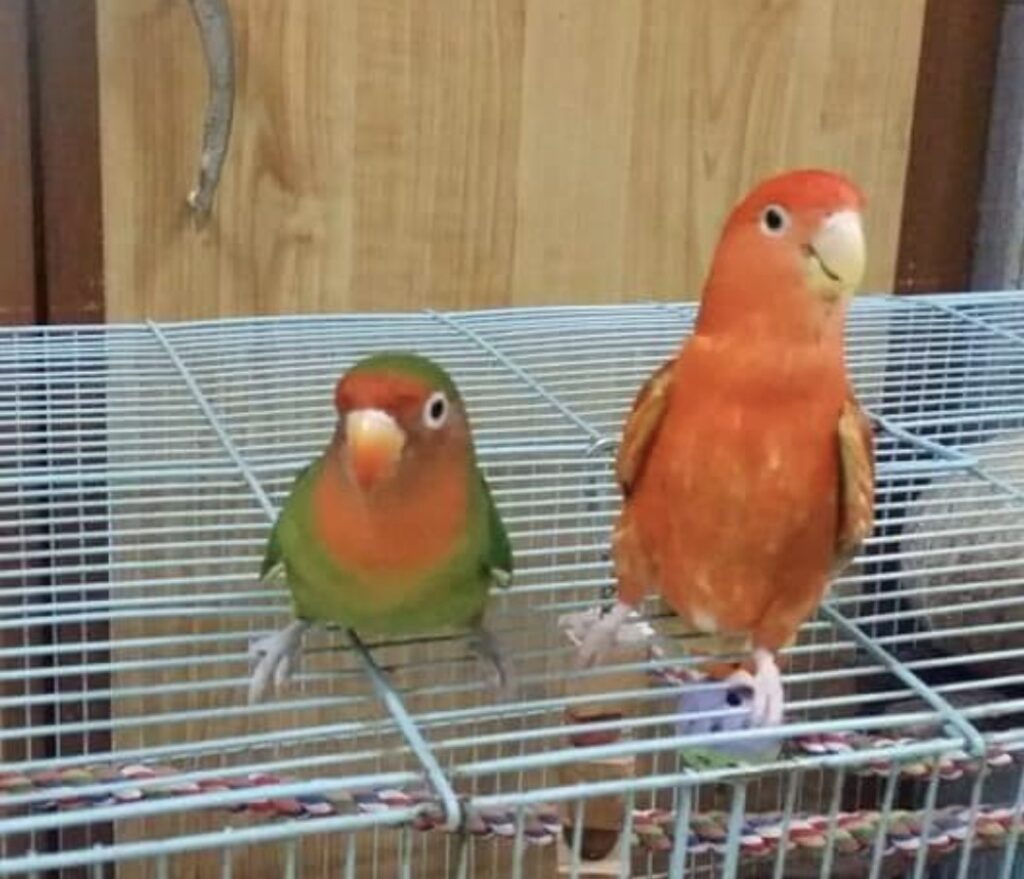
- Cause: High-fat diet and lack of exercise.
- Symptoms: Green droppings, swollen abdomen, lethargy.
- Transmission: Not contagious.
- Treatment: Low-fat diet and increased activity.
Other Conditions
22. Stargazing/Twirling
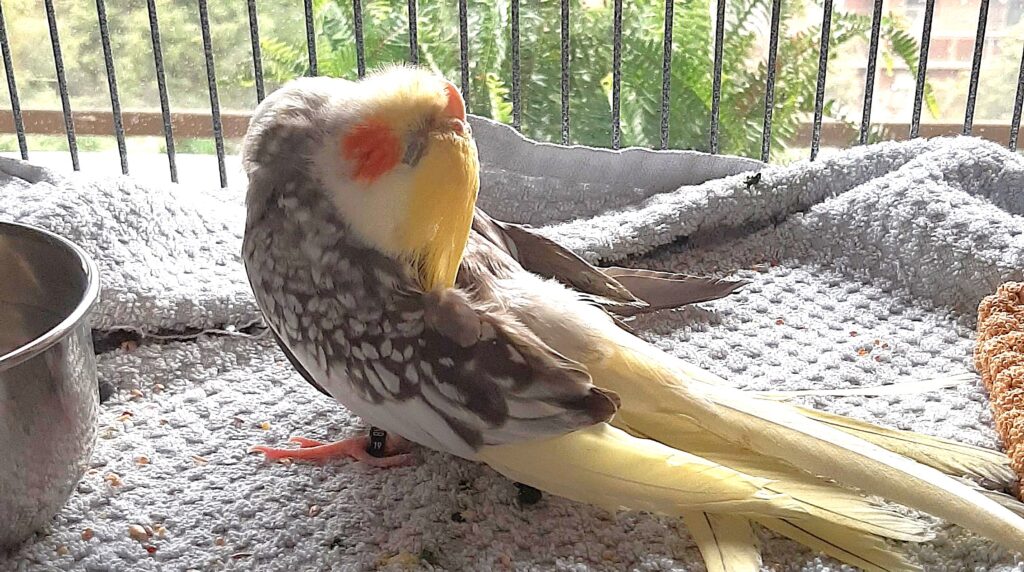
- Cause: Genetic, infections, or unknown triggers.
- Symptoms: Head tilting, circling movements.
- Transmission: Not contagious unless infection-related.
- Treatment: Veterinary evaluation and supportive care
23. Rhinoliths (Nose Stones)
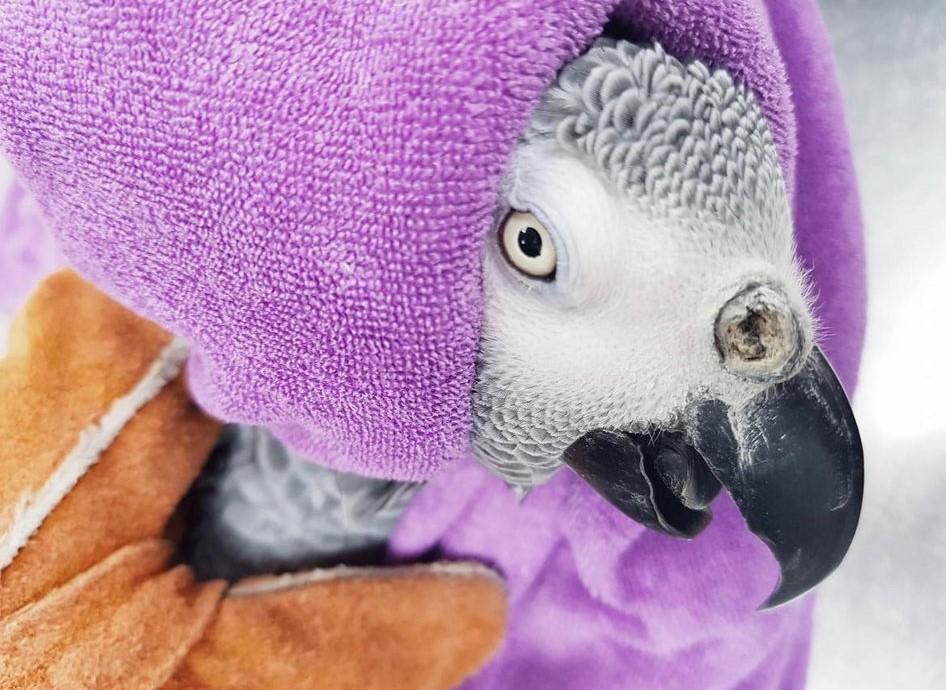
- Cause: Accumulation of debris, such as nasal discharge, blood, or dust, within the nostrils. Deficiency in Vitamin A can also contribute.
- Symptoms: Difficulty breathing, obstruction in nostrils, potential tissue necrosis around the nostrils.
- Transmission: Not contagious.
- Treatment: Surgical removal of the rhinolith by a veterinarian, followed by antibacterial medication if needed. Preventive measures include maintaining cage cleanliness, avoiding exposure to smoke, dust, or perfume, and ensuring adequate Vitamin A in the diet.
24. Seizures
- Cause: Abnormal electrical discharges in the brain, potentially triggered by infections, tumors, genetic predispositions, or metabolic imbalances.
- Symptoms: Episodes of disorientation, stiff movements, involuntary jerks, falling to the cage floor, lethargy, and confusion post-episode.
- Transmission: Not contagious. However, underlying conditions (e.g., infections) causing the seizures may be transmissible.
- Treatment: Immediate veterinary attention is necessary. Diagnosis may require blood tests, imaging, or biopsies to identify the underlying cause. Supportive care and prescribed medication can help manage the condition.
Final Note
Final Notes
Caring for a parrot involves vigilance and proactive measures to ensure their health and well-being. Here’s what you should remember:
- Monitor closely: Watch for unusual symptoms or behaviors.
- Act promptly: Seek professional advice from an avian veterinarian at the first sign of illness.
- Prevent transmission: Isolate sick birds to avoid spreading diseases to other pets or humans.
- Maintain hygiene: Clean cages, water, and feeding areas regularly to minimize risks.
By staying informed and observant, you can provide a safe and nurturing environment for your feathered companion, ensuring a long and healthy life together.
References (non-exhaustive)
Avian Gastric Yeast. (n.d.). Retrieved from PetMD: https://www.petmd.com/bird/conditions/digestive/c_bd_avian_gastric_yeast
Common Diseases of Parrots. (2020, October). Retrieved from The Parrot Society UK: https://theparrotsocietyuk.org/site/index.php/parrot-information/veterinary-advice/common-diseases-of-parrots/
Don J. Harris, D. (2001). Clinical Appearance of Avian Viral Disease. Retrieved from Vin: https://www.vin.com/apputil/content/defaultadv1.aspx
Gregory Rich, D., & Rick Axelson, D. (s.d.). Proventricular Dilatation in Birds. Retrieved from VCA Hospitals: https://vcahospitals.com/know-your-pet/proventricular-dilatation-in-birds
Margaret A. Wissman, D. D. (s.d.). Diseases Transmitted to Eggs. Retrieved from Exotic Pet Vet: https://www.exoticpetvet.net/avian/eggs.html
Russel, D. (s.d.). Rhinolith in Parrot. Retrieved from Advanced Pet Clinic: http://www.adpetclinic.com/en/useful-topics/articles/topics/rhinolith-in-parrot/
Sharman M. Hoppes, D. A. (2021, September). Mycotic diseases in pet birds. Retrieved from MSD Veterinary Manual: https://www.msdvetmanual.com/exotic-and-laboratory-animals/pet-birds/mycotic-diseases-of-pet-birds


